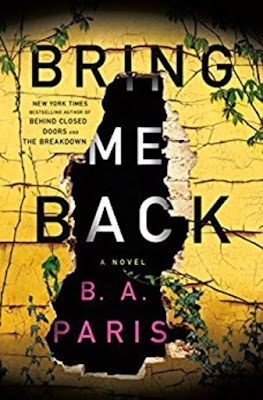293. Christened with Crosses by Eduard Kochergin
Christened with Crosses: Notes Taken on My Knees by Eduard Kochergin. Translated from the Russian by Simon Patterson & Nina Chordas (Canada) - (US) - (Kindle)
Pages: 226
Ages: 18+
Finished: Oct. 28, 2012
First Published: Jul. 25, 2012
Publisher: Glagoslav Publications
Genre: memoir, survival, communism, Russia, Soviet Union, orphans
Rating: 4/5
First sentence: "The first conscious memory in my life is linked with the ceiling, Maybe I was ill frequently, or there was some other reason ..."
Publisher's Summary: "While the mothers in Siberia wait for their soldier sons to return from the war in the west in 1945, the eight year old Eduard secretly jumps on board the trains heading in the opposite direction, heading west, towards Leningrad. Placed in a Siberian orphanage as a child because his parents were arrested as public enemies, there is only one thing he wants: to go back home to Leningrad and to find his mother again. It is not only his desperate courage and his youthful agility that ensure his survival, it is also his artistic talent. With his agile fingers the boy is able to bend wire in the shape of profiles of Lenin and Stalin, as if in silhouette. He uses them to cheer up the invalid war veterans on the train stations returning from the front, who then give him a piece of bread, a bowl of soup and who, in a spirit of comradeship, warn him of the railway police and the secret service henchmen wanting to send the runaway back to the orphanage.
Eduard spends more than six years on the run, experiencing close encounters with post-war Russia where life and fate have become synonyms. He encounters other stowaways, professional beggars, soldiers returning from the war and wartime profiteers, the mothers of soldiers and war invalids, Chinese from the Ural, Cossacks dealing in hashish, Bashkir Estonians, Russian penal colony escapees and, time and again, orphanage directors. In order to survive the winter he often registered himself voluntarily in the next orphanage, each one always a little closer to the West, running away again before the servants of the Stalinist state are able to send him back to Siberia.
The memoirs of an old man who, as a boy, learnt to find his way between extortionate state control and marauding banditry, the two poles that characterize Russia to this day. A story about the awakening of artistic talent under highly unusual Russian circumstances."
Acquired: Received a review copy from Good Reads First Reads program.
Reason for Reading: I enjoy this time period in history and am very interested in people who survived or escaped the evils of Communism.
This is the author's story of his childhood from when he was about 6 to 12. He starts in an orphanage in Siberia, escapes and spends the intervening years making his way across the country to his hometown of St. Petersburg (Leningrad) where he hopes to find his mother who was imprisoned during the war as a public enemy. At first I had thought this was going to be a Christian book because of the title but it is in no form that way inclined. The author explains in a brief foreword about his title ending with "The expression is capacious and ambiguous." The author is Polish Roman Catholic but that has little to do with the tale except for some cultural differences between him and the Orthodox Russians. I was a little disappointed at first, since I'd been expecting a Christian tale, but it had no affects on my enjoyment of the story.
Of course the author had a rough and tough childhood with the worst of it being in the orphanages he stayed. The one in Siberia being the worst of the worst; where the children were treated inhumanely. A good portion of the beginning is dedicated to this time of his life and here we find the reminiscences of an old man remembering when he was six to be vague. Rather than telling a story, the book starts off with vignettes and assorted remembrances that may or may not be in chronological order. I found this part of the book slow and thus hard to get into. However once he escapes and grows a bit the story starts to take on more coherence and reads more like a book, rather than snippets. He spends the summers traveling the rails, meeting up with all kinds of people, some good, some bad and he learns survival skills from some while learning trades from others. Already good at drawing he became a skilled artist, drawing decks of cards, shaping the two leaders out of wire, learnt to paint from a Chinese man and learnt the Japanese method of tattooing. These skills would forever keep him just beyond starvation over the years. He meets fellow orphan (or half) travellers like himself along the way making good friends. Some of them have happy endings to their stories, others do not. But overshadowing the whole journey is the fear and terror of the communist soldiers, guards, inspectors, government officials; who if they found him illegally riding the trains could easily send him back to Siberia and make his journey for nought. In the winters he would find a city orphanage to report too, tell them the truth about the last orphanage he was at and where he was headed and he would be put up. He'd be warm and half-way fed, possibly beat, but sometimes educated and then come spring he'd hit the rails again.
An interesting story of a life that so many must have lived at that time. So many families were torn apart by communism and the struggle of the littlest ones trying to find their way back home to someone who loves them is a heart-rending read.



It sounds heart-rending, and your review makes me curious about whether or not he ever found his parents and whether he left Russia.
ReplyDelete